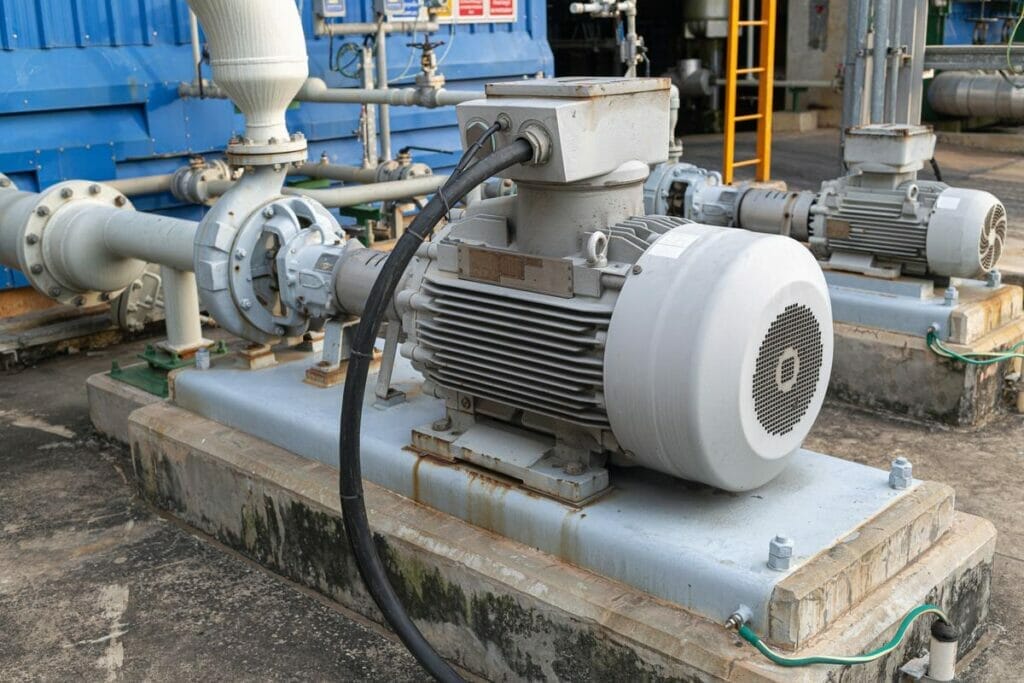Have you ever wondered about the differences between wet and dry mechanical seals? These two types of seals serve similar purposes but have distinct characteristics that set them apart. In this blog post, we’ll explore the key differences between wet and dry mechanical seals, helping you understand which type is best suited for your specific application.

What is Wet (Liquid) Seals
Wet seals, also known as liquid seals, are mechanical seals that rely on a liquid barrier to prevent leakage between the rotating shaft and stationary housing. The liquid, often referred to as a buffer fluid or barrier fluid, is introduced into the seal chamber at a pressure higher than the process fluid.
What is Dry Gas Seals
Dry gas seals are mechanical seals that use a gas, typically nitrogen or air, as the sealing medium instead of a liquid. The gas is introduced into the seal chamber at a pressure higher than the process fluid, creating a thin gas film between the rotating and stationary seal faces.
Key Differences between Wet (Liquid) Seals and Dry Gas Seals
Sealing Medium
Wet seals use a liquid as the sealing medium, typically the process fluid itself or a compatible barrier fluid.
Dry gas seals rely on a thin film of gas, usually nitrogen or air, to create a non-contacting seal between the rotating and stationary faces.
Seal Arrangement
Wet seals are often arranged in a single or double seal configuration.
Dry gas seals are typically arranged in tandem, with two seals working together to provide redundancy and prevent leakage.
Leakage
Wet seals tend to have higher leakage rates compared to dry gas seals. The liquid sealing medium can leak past the seal faces, especially as the faces wear over time.
Dry gas seals have extremely low leakage rates, often less than 0.1 standard cubic feet per minute (SCFM), making them a preferred choice for applications where minimizing leakage is critical.
Lifespan
The lifespan of wet seals is generally shorter than that of dry gas seals. The constant contact between the seal faces and the liquid medium leads to faster wear and tear, requiring more frequent replacement.
Dry gas seals, with their non-contacting design and clean sealing environment, can last significantly longer, often several years without needing replacement.
Maintenance
Wet seals require more frequent maintenance due to their higher wear rates and the need to monitor and replace the sealing liquid.
Dry gas seals, with their longer lifespan and minimal leakage, require less maintenance and can help reduce overall operational costs.
Cost
The initial cost of wet seals is typically lower than that of dry gas seals. However, when considering the total cost of ownership, including maintenance and downtime costs, dry gas seals often prove to be more cost-effective in the long run, especially for applications where reliability and low leakage are critical.
Applications
Wet seals are commonly used in pumps, mixers, and other rotating equipment where the process fluid is compatible with the sealing medium and moderate leakage is acceptable.
Dry gas seals are preferred in compressors, turbines, and other high-speed, high-pressure applications where minimal leakage and long seal life are essential.
FAQ
Can a wet seal be converted to a dry seal?
Converting a wet seal to a dry seal is not a simple process and typically requires significant modifications to the equipment and seal design.
In conclusion
In conclusion, understanding the differences between wet and dry mechanical seals is crucial for selecting the appropriate seal for your application. Consider factors such as lubrication, operating conditions, and maintenance requirements when making your choice. Contact a trusted seal manufacturer or distributor for expert guidance on your specific needs.


